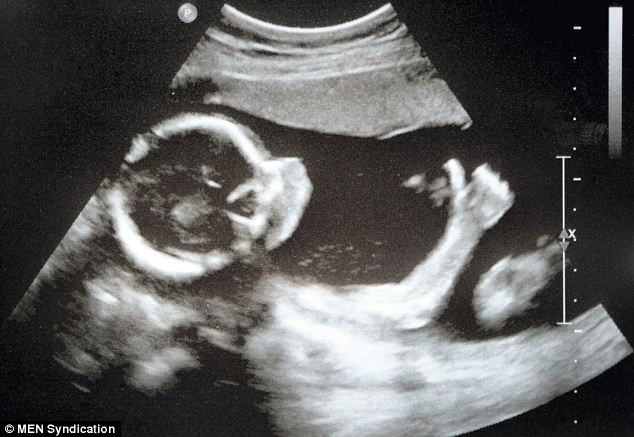Permanently legalising home abortions is a terrible idea
The Telegraph 8 December 2020
Family First Comment: Disturbing reading from the UK where ‘home abortions’ have also been authorised (similar to NZ)…
“Freedom of Information (FOI) requests have revealed the aftermath from the pills-by-post process to include sepsis, hemorrhaging, embolisms, renal failure and trauma to pelvic organs, among other medical complications. A lack of adequate oversight, testing for gestational limits and appropriate medical inquiry has also led to abuses and misadministration of the pills. There are at least 52 cases officially reported to the Department of Health and Social Care of women who were provided pills-by-post beyond 10 weeks gestation, including one case where the unborn child was at 28 weeks gestation (beyond the legal limit). A recent leaked email sent by a Regional Chief Midwife at NHS England and NHS Improvement on the “escalating risks” of the pills-by-post service revealed a woman at 32 weeks of pregnancy received the abortion pills, that there are 3 police investigations linked to late at-home abortions, including a “murder investigation as there is concern that the baby was live born” and a further 13 incidents under investigation. We also need to be acutely aware that self-administration of abortifacient medication in this way removes an opportunity to ascertain whether abuse or coercion is involved in the decision. This poses a threat to vulnerable women and girls who are at risk from an abusive partner, sex-trafficking or child-sex abuse, as the home abortion could be used by their abusers as a means to more easily cover up trafficking or abuse scandals.
Damaging concessions made at the beginning of the pandemic have proven to be highly dangerous for the women they purport to help.
… In response to the crisis, and as part of its strategy to “Protect the NHS”, the UK Government approved measures to allow ‘pills-by-post’ or ‘at home’ abortions. This is the largest change to abortion law since 1967 and was done without any parliamentary scrutiny or public consultation.
The measures allow consultations with a single doctor or nurse over the phone, after which both sets of abortion pills (one mifepristone/six misoprostol) are sent to the patient’s home for a woman to effectively perform a DIY abortion, up until 10 weeks gestation.
Prior to these DIY provisions, many women already suffered complications from the procedure. The removal of abortion from a clinical environment along with any medical professional directly overseeing the abortion process, compounds the potential issues suffered.
…. Already we have begun to see the consequences of eroding the safeguards and protections that were set in place for the health and safety of women opting for this procedure. It is difficult to quantify the number of complications that have arisen from these pills, such as incomplete abortion and continued bleeding, due to insufficient data collection of patients receiving the pills, but Freedom of Information (FOI) requests have revealed the aftermath from the pills-by-post process to include sepsis, hemorrhaging, embolisms, renal failure and trauma to pelvic organs, among other medical complications.
According to the BPAS, three in 100 pregnancies of up to nine weeks’ gestation require a follow-up surgical abortion after an early termination; this rises to seven in 100 for gestation of nine to ten weeks.
A lack of adequate oversight, testing for gestational limits and appropriate medical inquiry has also led to abuses and misadministration of the pills. There are at least 52 cases officially reported to the Department of Health and Social Care of women who were provided pills-by-post beyond 10 weeks gestation, including one case where the unborn child was at 28 weeks gestation (beyond the legal limit).
A recent leaked email sent by a Regional Chief Midwife at NHS England and NHS Improvement on the “escalating risks” of the pills-by-post service revealed a woman at 32 weeks of pregnancy received the abortion pills, that there are 3 police investigations linked to late at-home abortions, including a “murder investigation as there is concern that the baby was live born” and a further 13 incidents under investigation.
We also need to be acutely aware that self-administration of abortifacient medication in this way removes an opportunity to ascertain whether abuse or coercion is involved in the decision. This poses a threat to vulnerable women and girls who are at risk from an abusive partner, sex-trafficking or child-sex abuse, as the home abortion could be used by their abusers as a means to more easily cover up trafficking or abuse scandals.
A 2014 study on the incidence of coerced abortion in abusive relationships found that one third of participants reported pressure to abort, whilst another found that seven out of 13 women in domestic violence situations experienced pressure to abort. Such coercion would be impossible to detect without a face-to-face consultation as there is no guarantee with a telephone or video call that an abusive party is not listening in.
The previous legal framework ensured multiple protections for women. Gestational testing ensured that women were accurately able to ascertain their current week of pregnancy, greatly minimising the chance of accidental misadministration. The required approval of two doctors ensured that women were able to make an informed decision, with a trained medical professional able to ascertain the mental health, physical wellbeing, and concerns of abuse with a patient.
As we find ourselves back in the Tier system, the Government has stressed that this time, their guidance encourages attending medical appointments in person to ensure that we have access to every health service necessary – but for some reason, not women seeking an early abortion. It is crucial that the Government reverses these damaging concessions that were made at the beginning of the pandemic that have proven to be so dangerous, and restores protections for women during these unprecedented times, and reverses the concessions for at-home abortions.
https://www.telegraph.co.uk/news/2020/12/08/permanently-legalising-home-abortions-terrible-idea/
Reducing abortion safeguards fails vulnerable women
The Times 17 December 2020
Few could have foreseen that the ferocious challenges of the past several months would produce the most radical change to United Kingdom and Scottish abortion law since 1967, by allowing the use of both sets of abortion pills at home, potentially for two years and beyond. As the Scottish government consults on the future of “at-home” abortion, there appear to be very few reasons to make the change permanent.
The recently launched consultation seeks the opinions of the Scottish public on the post-Covid future of a temporary measure to allow fully domestic abortion in the first 12 weeks of pregnancy. Previously, only the second abortion pill could be taken at home after a series of checks via in-person consultation, most importantly ultrasound scans or physical examinations to confirm the stage of pregnancy.
Advocates of at-home abortion wrongly claim that such a scheme encourages earlier — and therefore “safer” — abortions. The increase in the proportion of abortions under ten weeks’ gestation in England and Wales, for instance, follows a separate longer-term trend towards more abortions at earlier gestations (as shown by the UK government report on abortion statistics during the Covid-19 pandemic) rather than simply resulting from a sudden change in abortion provision.
Furthermore, the serious difficulties caused by the lack of in-person consultation should not be underestimated. There is no entirely reliable way to verify the stage of pregnancy without an ultrasound or physical examination. The abortion provider British Pregnancy Advisory Service has already announced investigations of nine cases of women taking abortion pills beyond the ten-week limit, while police in England are investigating the death of an unborn baby after the mother took home-abortion pills when she was 28 weeks’ pregnant.
While I appreciate the recent response to my written question on the matter, in which the minister for public health declared that patients can still be seen in person when there is uncertainty around their gestational stage, even this provision fails to resolve the problem of potentially inaccurate self-reporting. The dangers of exacerbating coercion and undetected abuse through unsupervised at-home abortion are similarly sidelined by proponents of the scheme.
These serious matters deserve immediate redress. Weakening safeguards and waiving safety concerns for some of the most vulnerable in our society is surely the wrong move. The women of Scotland deserve better.
John Mason is the SNP MSP for Glasgow Shettleston
https://www.thetimes.co.uk/edition/scotland/reducing-abortion-safeguards-fails-vulnerable-women-0wb9rtn39





